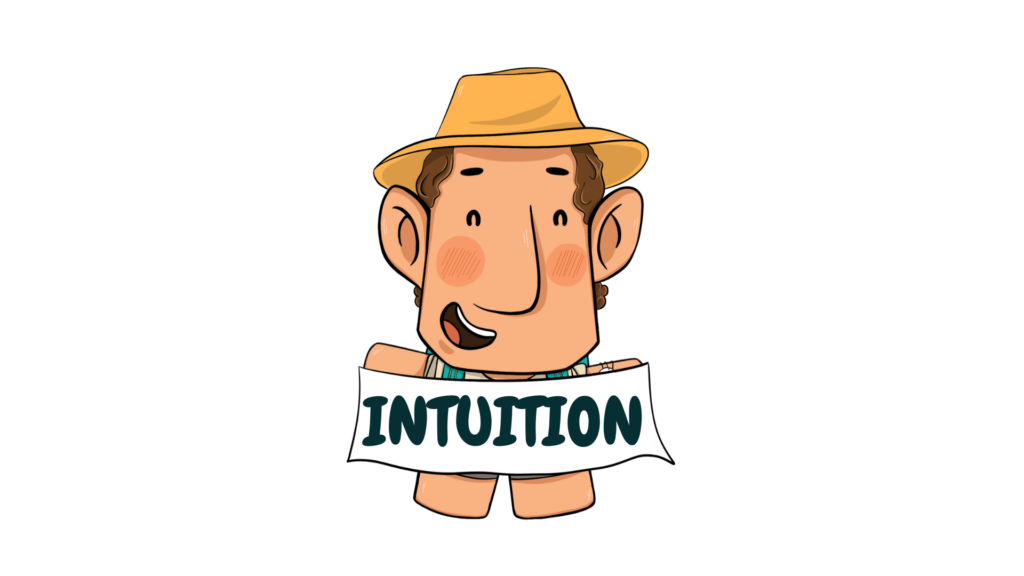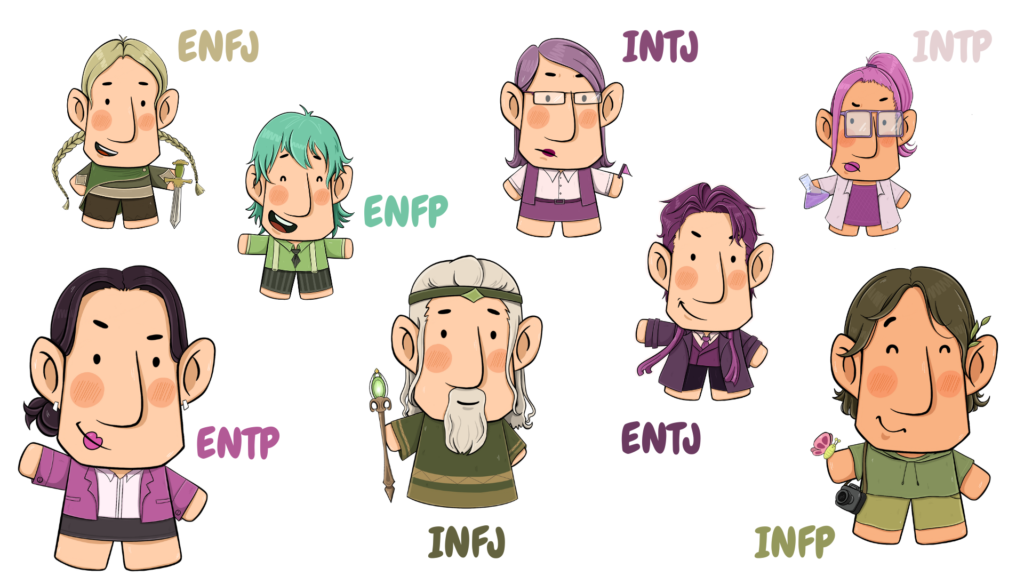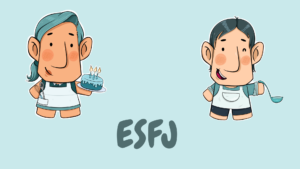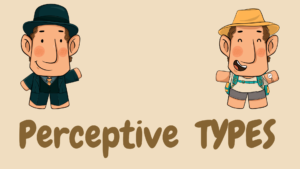
Do you find yourself lost in a world of daydreams, where your imagination runs with possibilities? Do you often come up with brilliant ideas that make others question your sanity? Congratulations, my friend, you may just be blessed with intuitive tendencies! Your brain is wired in a way that allows you to think outside the box and come up with unconventional solutions. You’re like a scientist constantly searching for a new and improved way to do things. So let’s dive deep into the fascinating world of intuition and unlock its profound power.
Where Did the Intuition Word Come From?
The concept of intuition has been a part of human experience for centuries, with roots in ancient philosophy and spiritual beliefs. Many cultures throughout history have recognized the value of intuitive thinking and have developed practices to cultivate this ability.
In ancient Greece, philosophers such as Plato and Aristotle believed in the power of intuition as a way of accessing higher truths and wisdom. They saw intuition as a form of divine inspiration that could help individuals connect with the universe and understand the deeper meaning of life.
Similarly, in Eastern spiritual traditions such as Buddhism and Taoism, intuition is seen as a key aspect of enlightenment and spiritual growth. These traditions emphasize the importance of cultivating a clear and open mind in order to access deeper levels of awareness and insight.
The modern understanding of intuition as a personality trait can be traced back to the work of Swiss psychiatrist Carl Jung. Jung’s theories on personality types and the human psyche included the concept of intuition as one of four primary functions. He defined intuition as a way of perceiving information that is beyond the realm of the five senses.
Today, intuition continues to be a subject of interest and debate in fields such as psychology, neuroscience, and philosophy. While some researchers are skeptical of the value of intuitive thinking, others see it as an essential aspect of human cognition and decision-making.

Broadened Perspective on Intuition
Intuition serves as a cognitive mechanism that involves the perception of information without a direct reliance on conscious reasoning or analytical thinking. Described as a “gut feeling” or an inner sense of knowing, intuition often operates independently from external sources. It’s an intricate process that shapes how individuals engage with the world around them, leading to a myriad of distinct attributes and behaviors.
Heightened Characteristics of Intuitive Individuals
Instinctive Decision Making
Intuitive individuals trust their instincts and internal guidance when deciphering information or making decisions, aligning their actions with a profound inner sense.
Sensitivity to Subtle Cues
They exhibit heightened awareness of subtle cues and nonverbal communication, demonstrating acute sensitivity to the emotions and unspoken needs of others, thus fostering enhanced interpersonal understanding.
Innovative and Imaginative Thinking
Intuitive individuals often display exceptional creativity and innovation, frequently generating novel ideas and pioneering solutions to complex problems, harnessing their unique perceptual abilities.
Open-Mindedness and Adventurous Exploration
They possess a willingness to embrace unconventional or unproven possibilities, demonstrating an open-minded approach to new concepts and unexplored avenues, thus fostering a culture of experimentation and exploration.
Deep Empathy and Emotional Connectivity
Intuitive individuals often exhibit a substantial degree of empathy, allowing them to form profound emotional connections with others, fostering a supportive and compassionate environment founded upon genuine understanding.
Introspective and Reflective Contemplation
These individuals frequently engage in introspection and contemplative periods, delving into self-reflection and thoughtful consideration, nurturing personal growth and self-awareness.
Development and Nurturing of Intuition
It’s crucial to recognize that intuition, as a cognitive process, is not solely an inherent trait. While some individuals naturally possess stronger intuitive abilities, others can develop and fortify their intuitive skills through deliberate practices and exposure to diverse experiences. By actively engaging in self-reflection, honing perceptual awareness, and embracing new challenges, individuals can enhance and refine their intuition over time, ultimately incorporating it as a vital element of their decision-making and problem-solving repertoire.

Pros and Cons of Being an Intuitive
Pros of Being an Intuitive
Ability to read people and situations
Intuitive people are often able to read people and situations quickly and accurately. This can be a valuable skill in many areas of life, including business, relationships, and personal growth.
Creative problem-solving
Intuitive people are often able to come up with creative solutions to problems that others may not have considered. This can be a valuable asset in many different fields, from art to science to business.
Strong sense of empathy
Intuitive people often have a strong sense of empathy, which allows them to connect with others on a deeper level. This can be helpful in building relationships and understanding others’ perspectives.
Deep understanding of self
Intuitive people often have a deep understanding of themselves and their own emotions. This can be helpful in personal growth and self-improvement.
Heightened intuition
Intuitive people often have a heightened sense of intuition, which can help them navigate difficult situations and make better decisions.
Cons of Being an Intuitive
Difficulty with logic and reason
Intuitive people may struggle with logic and reason, as they tend to rely more on their gut instincts than on rational analysis.
Overthinking
Intuitive people may sometimes overthink situations or read too much into things, which can lead to unnecessary stress or anxiety.
Sensitivity to negative energy
Intuitive people may be more sensitive to negative energy or emotions, which can be draining or overwhelming at times.
Difficulty communicating thoughts and feelings
Intuitive people may struggle to communicate their thoughts and feelings effectively, as they may rely more on intuition than on verbal communication.
Difficulty fitting in
Intuitive people may sometimes feel like they don’t fit in with mainstream society, as their way of thinking and perceiving the world may be different from others.

Intuitive Assessment Methods
There are different methods for evaluating people’s Intuitive, which we mention some of them.
Types of Intuition Scale (TIntS)
This scale assesses an individual’s intuitive abilities based on the theoretical view of intuition as three distinct types: holistic, inferential, and affective.
Rational Experiential Inventory (REI)
The REI is a newer measure of intuition that assesses a broader variety of tasks that rely on each type of intuition.
Myers-Briggs Type Indicator (MBTI)
The MBTI is a popular self-assessment tool that measures an individual’s personality traits, including their intuitive abilities.
StrengthsFinder
This assessment tool helps individuals identify their strengths and talents, which can include intuitive abilities.
Intuitive Index Assessment
This assessment method evaluates an individual’s intuitive abilities through five perceptive pathways: Inner Knowing (spiritual gnosis or Claircognizance), Feelings (empathic understanding), Imagination (creative visualization), Insight (intuitive leaps), and Instinct (gut feelings).
The abundance of Intuitive people
Intuitive people are often characterized by their ability to see things clearly, find solutions quickly, and make keen observations. While there is no specific global statistic on the abundance of intuitive people, it is suggested that only about 25% of the population enters the world through intuition. Intuitive individuals are known to stand out due to their quick minds, openness to possibilities, and their ability to detect associations and solutions that may be hidden from others. They are often described as having a deep understanding and a unique way of perceiving the world, which can lead to feelings of loneliness, as they may struggle to find like-minded individuals to connect with. Despite the lack of a precise numerical abundance, the impact of intuitive people on the world is evident, as they are often successful in various endeavors and can make a significant influence on the world around them.




